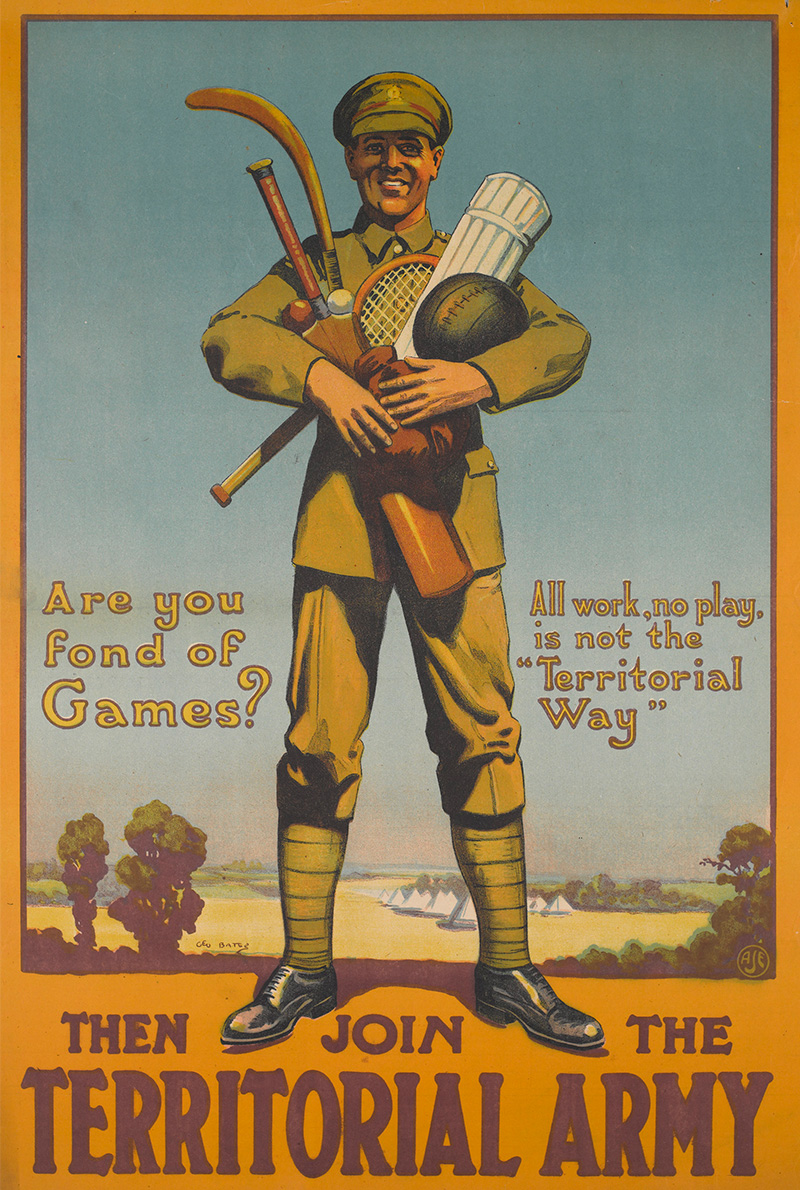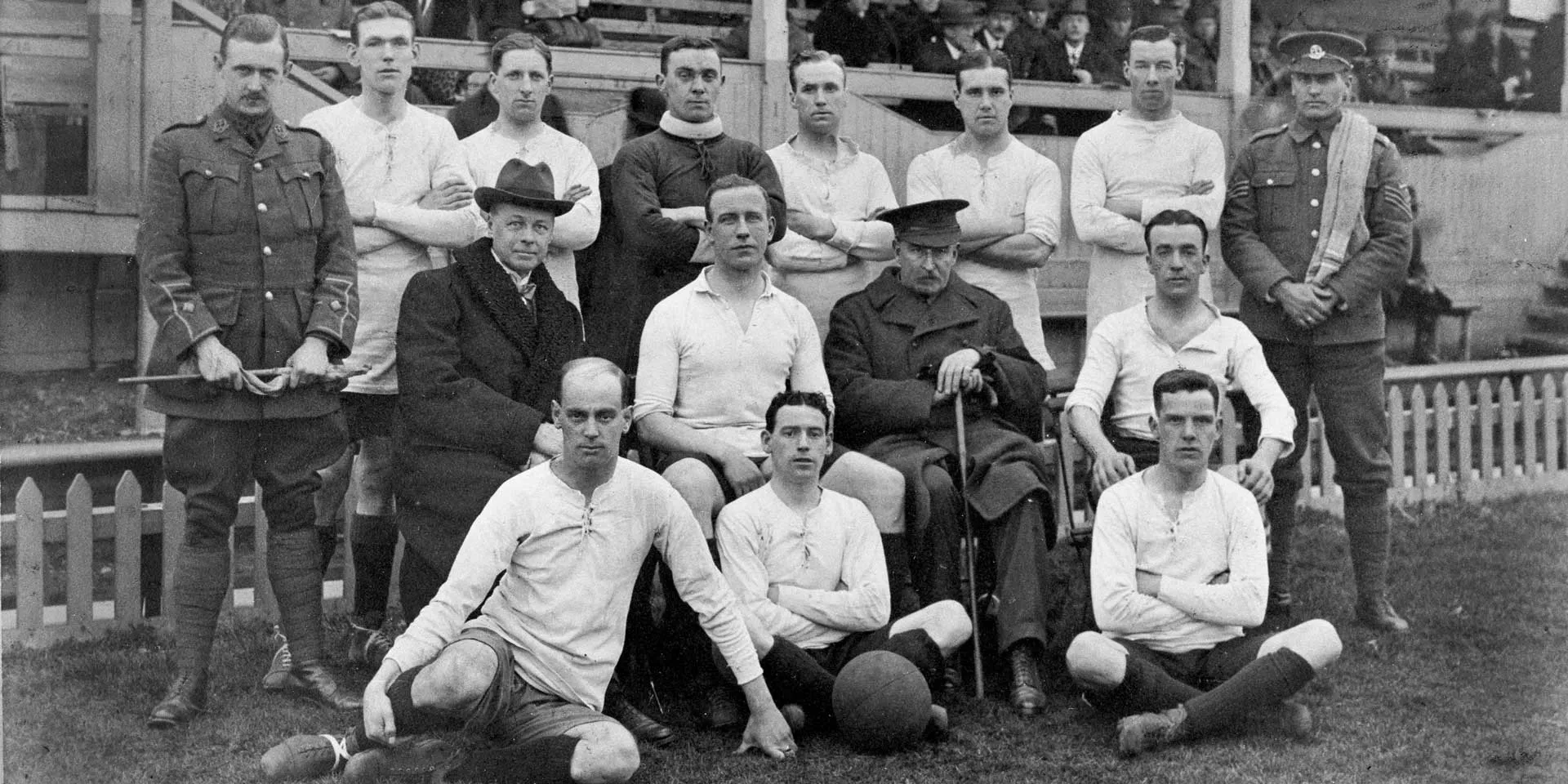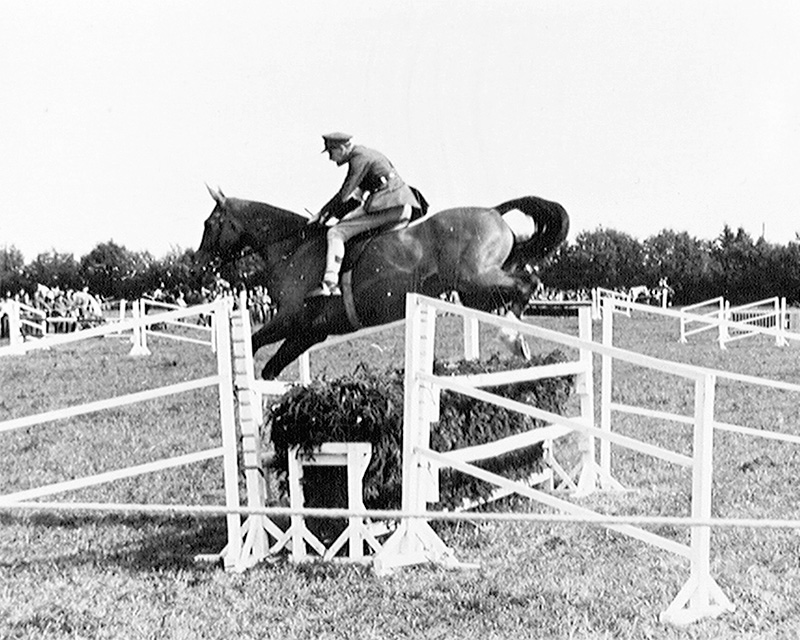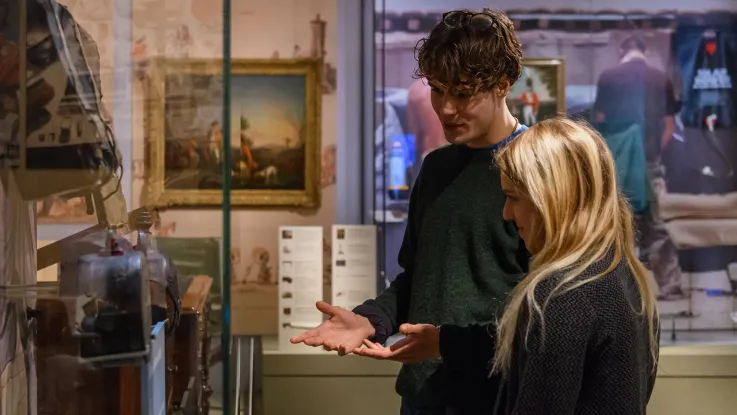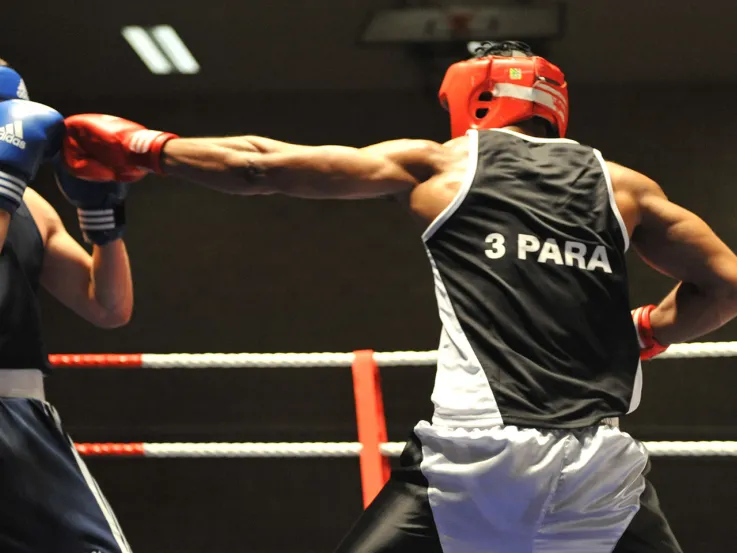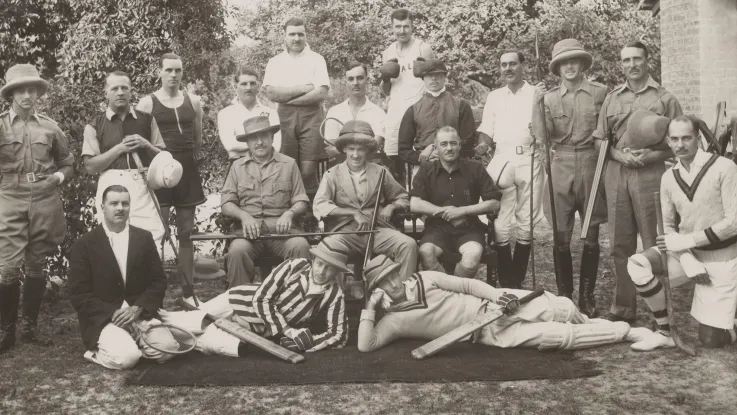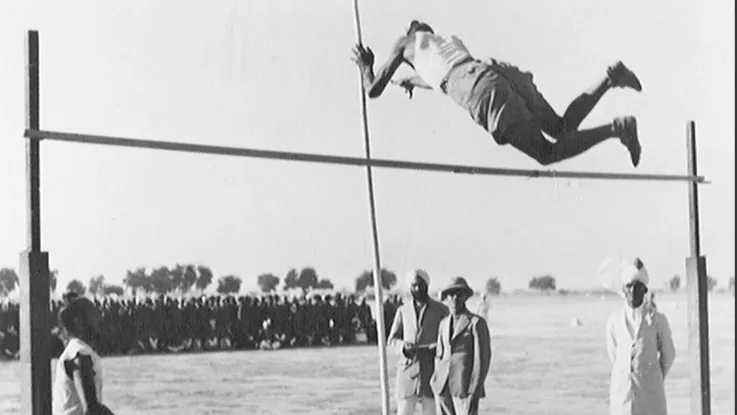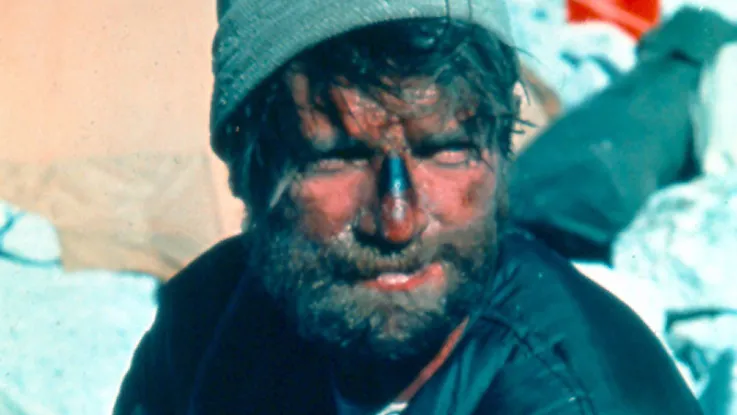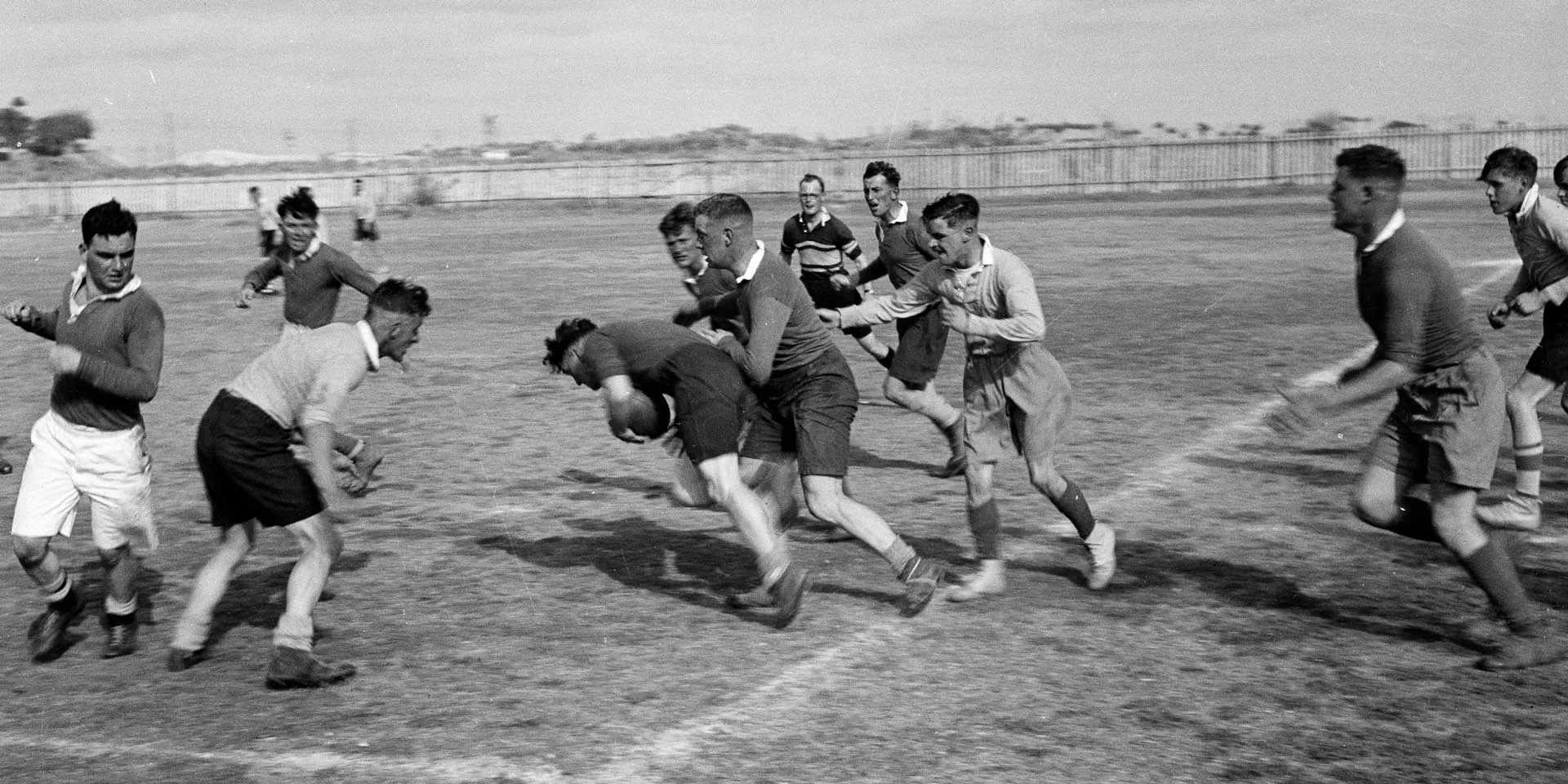
Rugby match featuring members of the 3rd County of London Yeomanry (Sharpshooters), c1942
A sporting life
The attraction of a sporting life was especially strong for officers from Britain's sport-dominated public schools. However, by the late 19th century, sport was such a key part of popular culture that working-class men were no doubt equally drawn in by the opportunity to exercise their athletic prowess.
Certainly, access to facilities and equipment, alongside the amount of time given over to play, would have been appealing to would-be soldiers from all echelons of society.
Sport was a way of making military life more attractive and fitted into the overall improvement in conditions of Army service that took place during the late 19th and early 20th centuries.
The emphasis on sport to drive recruitment continued into the modern era. A 1972 Army pamphlet declared: 'You'd have to be a very rich civilian indeed to take part in all the sport available to the average infantryman.'
‘I joined because I enjoy being physically challenged. I enjoyed sports at school. The Army came in to do a “look at life” sort of day and I really enjoyed it and thought I'd like the physical side to it.’Sergeant Chris Barnes, 3rd Battalion, The Yorkshire Regiment (Duke of Wellington's) — 2011
Polo
Sport also had an influence on officer recruitment in the Indian Army. The availability of activities such as polo, at a price that made them affordable to most for the first time, was a key factor in the appeal of joining that force.
Cheap ponies and grooms in India made the sport accessible to infantry and artillery as well as cavalry officers. Coupled with the official encouragement of the sport as an ideal form of training for war, this meant that most barracks and cantonments in India had a polo field.
Football
The formation of the 'New Armies' during the First World War (1914-18) allowed footballers to enlist en masse in 'Pals' battalions.
Clapton Orient (now Leyton Orient) was the first English Football League team to enlist collectively. Following the example of club captain, Fred Parker, around 40 players and staff volunteered. They joined the 17th (Service) Battalion of The Middlesex Regiment, which became known as the 'Football Battalion' and soon went on to attract players from other clubs.
The photograph below depicts several players from the battalion. Richard McFadden of Orient (seated centre) was awarded the Military Medal before being mortally wounded during the Battle of the Somme in 1916.
Standing second from the right is Frank Bullock of Huddersfield Town and England, who survived the war. Edwin Latheron of Blackburn Rovers and England stands second from the left. He was killed at Passchendaele in October 1917.
Malkam
Malkam, or mallakhamb, was a sport in which various balancing acts were performed on a 13-foot teak pole set in the ground. It was one of several traditional village pastimes kept up in the Indian Army's Maratha battalions during active service.
The Marathas were one of India's so-called 'Martial Races' and the British went to great lengths to persuade them to serve in the Army. Maintaining traditional Maratha sports, like malkam and wrestling, was no doubt a useful recruiting tool.
Rugby
Certain regiments excelled at specific sports, which helped them to recruit individuals who favoured these pursuits. The Duke of Wellington's Regiment (West Riding), for example, was enhanced by the recruitment of officers and men with a flair for rugby. Eleven international players - seven English, one Irish and three Scottish - served in the regiment.
Since 1914, more than 50 players from 'The Dukes' have been capped for the British Army in matches against the Royal Navy and Royal Air Force. Today, its successor unit, The Royal Yorkshire Regiment, continues to attract keen rugby players.
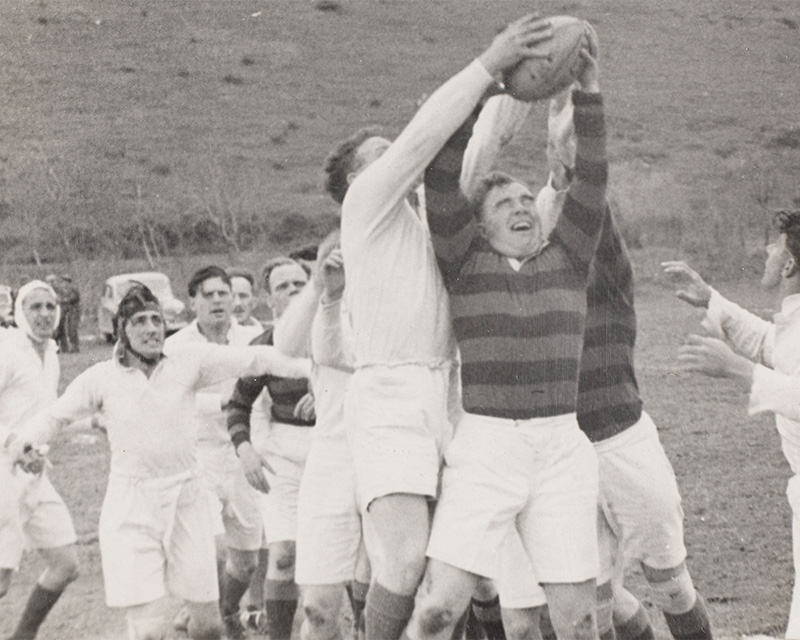
Regimental rugby, 1950s
‘There was a company commander at Sandhurst who was in charge of recruiting officers into this battalion, and... being a rugby player - and it's a rugby regiment - I was captain of the Sandhurst rugby team and that was my destiny!’Captain Andrew Bond, 3rd Battalion, The Yorkshire Regiment (Duke of Wellington's) — 2011
A positive image
Another way in which sport has aided recruitment is by raising the profile of the Army in wider society. By playing against civilian teams and competing in civilian contests, Army sportsmen projected a positive image of military life to potential recruits.
Army participation in equestrian events like show jumping, horse racing and tent-pegging also provided soldiers with the opportunity to enhance their training while mixing with society.

